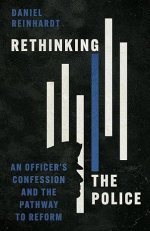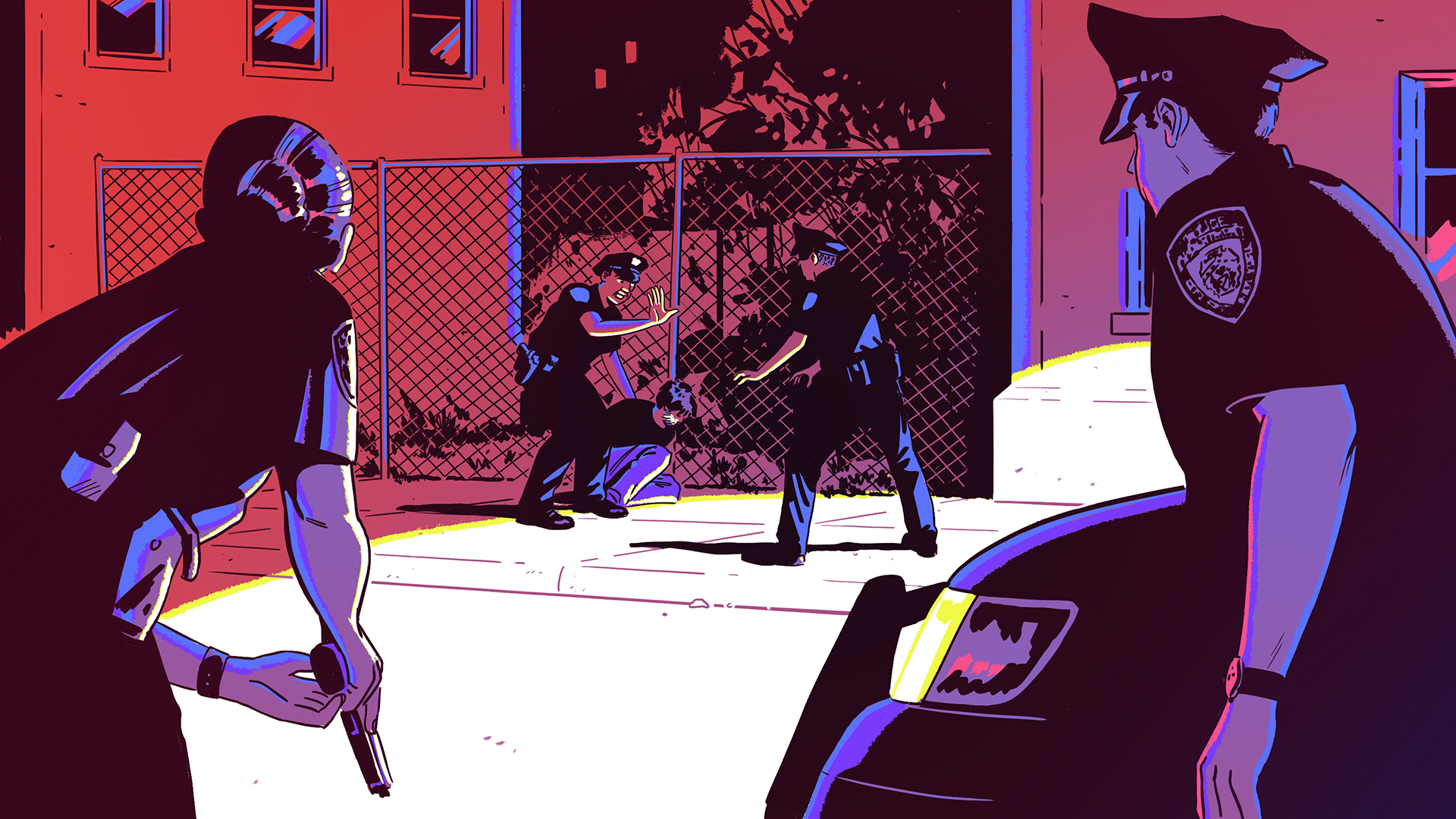On May 25, 2020, George Floyd was murdered by a police officer during an arrest in Minneapolis. The incident exploded into the largest nationwide protest in more than 50 years. Some groups demanded the abolition of the police, often with renewed accusations that the American criminal justice system is inherently racist.
In some circles, calls rang out to “Defund the Police.” In others, exhortations went forth to “Back the Blue.” Amid a whirlwind of competing claims about bias and brutality, most people simply wondered how to find the facts, what reform ought to look like, and whether systemic justice might ever be achieved.
Although passions have subsided in recent months, the conversation remains as important as ever. And we now have the blessing of two books written by criminal justice insiders, both of whom seek to bear faithful Christian witness.
Daniel Reinhardt, a seminary professor who worked in policing for 24 years, is the author of Rethinking the Police: An Officer’s Confession and the Pathway to Reform. And Matthew T. Martens, an attorney specializing in criminal law, has written Reforming Criminal Justice: A Christian Proposal. Both are intentional in seeking to apply biblical wisdom to their callings.
Rethinking the Police argues that police culture itself leads to abuse on the streets. Reinhardt is generous toward both his former colleagues and current criticisms of the police, from movements like Black Lives Matter to books like The New Jim Crow and Driving While Black. He is an effective witness to police culture in both its shortcomings and its potential.
At its most successful, the book’s argument simply connects the dots between the history and hierarchical structure of police departments, the “toxic leadership” bred into the system, and the biased enforcement patterns that result. Reinhardt encourages police officers and departments to “reflect on how they have influenced” communities—particularly minority communities—negatively.
Reinhardt advocates for a “servant-shepherd” leadership model defined by four core principles: Leaders are followers first; police leaders are one with the community of officers they command; authority and power should be used judiciously and benevolently; and the primary objective of all involved is securing justice and peace.

Reinhardt applies these principles to both the internal culture of police departments and the conduct of officers at work in their communities. Within leadership ranks, he sees patterns of “social distance, dehumanization, and abuse of power.” Among the consequences, he argues, are estrangement between cops and their communities, distrust toward people the police are sworn to protect, and mistreatment of criminal suspects.
The book highlights various fault lines between police and the public, noting a range of day-to-day realities that contribute to a dysfunctional culture. For example, Reinhardt says dangerous aspects of the work, such as high-pressure SWAT team operations, tend to erode compassion in officers.
In addition, he describes departmental practices that are antithetical to treating image-bearers with respect, such as zero tolerance approaches to street level offenses. In all of this, Reinhardt never bemoans the difficulties of the job or a lack of understanding from communities. His critique looks inward without blaming others.
I’m not persuaded, however, that a servant-shepherd model should govern the work of policing in every respect. Law enforcement actions are supposed to be impersonal and unbiased, even if policing is an unavoidably social task. Reinhardt struggles to navigate this tension, in part because he sees both “social distance” and “impersonal enforcement” in and of themselves as causes of dehumanization, racial bias, and abuse. But even though objectivity is certainly no guarantee of equal justice, objective enforcement of laws need not lead to the outcomes Reinhardt deplores.
In criticizing the utilitarian nature of police culture, Reinhardt demonstrates how officers circumvent rules about protecting suspects because they “handicap” enforcement actions. Yet he errs in blaming the noble ends themselves for incentivizing the rule-breaking. He faults an “ethic of enforcement” for undercutting community-oriented policing and furthering systemic racism. Which leaves us to wonder: What is the primary role of policing, if not the enforcement of laws?
Similarly, Reinhardt recalls working in a high school overrun by violence and executing a zero tolerance arrest policy that ultimately harmed the futures of many Black students. He blames an “unquestioned belief in the ethics of enforcement” that police culture had instilled.
It is clear from his example, however, that the school’s biggest problem was its zero tolerance arrest policy, with its blindness to context and other mitigating factors, rather than an unexamined “ethic of enforcement” on the part of police. In an environment where, as Reinhardt states, “teachers were attacked” and “fights in the cafeteria” were breaking out daily, committed enforcement was what the school needed most.
Reinhardt’s lack of confidence in the central mission of civil authority undercuts his approach to reform. Throughout the book, the ideals of peacekeeping, crime prevention, and providing for communities replace the duties of enforcement and punishment. Under the servant-shepherd model, as Reinhardt outlines it, police officers more closely resemble pastors.
On the surface, this might seem unobjectionable. But the tendency of Christians to advance “loving” solutions without considering God-ordained contexts for love—like role-specific callings and duties—can actually be harmful. At the very least, reconceiving police as “providers” could enable a dangerous overstep of state authority. As Reinhardt himself states, “There are virtually no limits to this function.”
Like Reinhardt, Martens brings a wealth of biblical insight to a domain he knows well. In Reforming Criminal Justice, he argues that God demonstrates his love for the community—including victims, suspects, and perpetrators—through enforcement of the law, which sometimes entails bearing the “sword” that Paul invokes (Rom. 13:4).

Martens begins by laying out the theological foundations of criminal justice, including the question of enforcement, its relationship to justice and love, and the duties of those who use violence on behalf of the state. He proposes “a Christian ethic of criminal justice by which we can measure our, or any other, criminal justice system.” And he grounds his work in both ancient and contemporary sources on justice and punishment, from Augustine and Aquinas to Nicholas Wolterstorff and Oliver O’Donovan.
Next, Martens considers how the criminal justice system has operated throughout American history. His account, starting with the Declaration of Independence and the enshrinement of fundamental rights, highlights the role of slavery in denying Black people the blessings of American citizenship. He describes the impossibility for Black people to get a fair trial, citing their exclusion from juries and other methods of disenfranchisement. And he covers the “weaponization of criminal justice against Blacks” after the Civil War, as manifested through Jim Crow laws, unprosecuted lynchings, and other abuses.
Surveying the contemporary criminal-law landscape, Martens does not shy away from the implications of long-standing systemic injustices, and he addresses their disproportionate cost to poor and nonwhite Americans. He acknowledges feeling compelled to write because of the “series of deaths of Black children and men, often at the hands of police.” Elsewhere, he states that Reforming Criminal Justice is “not a book about race, but race cannot be avoided in an honest conversation about criminal justice in America.”
Martens’s evaluation is refreshingly nonpartisan, with no agenda apart from seeking avenues of reform in light of current events and ancient wisdom. He argues that a criminal justice system best reflects God’s love and justice when it prioritizes “impartiality, accuracy, due process, accountability, and proportionality in punishment.”
The book deals squarely with many truths that are often too complex for today’s sound-bite world. It is not easy to communicate, for instance, that retribution for crimes—even violent retribution delivered by human beings empowered to bear the sword—can be rooted in God’s love for wrongdoers and victims alike. But Martens does so ably, carefully considering the context and meaning of Romans 13. He also recognizes that civil government is “not the only institution God has ordained to restrain wrongdoing,” noting that families, churches, employers, and institutions have their own divinely sanctioned roles to play.
Despite its philosophical strengths, Martens’s book is not short on practical suggestions. He calls for accountability for officials who overstep their God-given authority. His chapter on the practice of plea bargaining meticulously details the coercive weight prosecutors can bring to bear against even innocent defendants. Other sections analyze flaws in the jury selection process, bias among judges, and the “epidemic of concealment” in government handling of exculpatory evidence.
Throughout, Martens places our call to do justice (Mic. 6:8) at the heart of the gospel. He answers those who say, “Just preach the gospel” with an exhortation to actually do the gospel. And he cautions those who have utopian aspirations to end injustice, saying that perfect justice will only be secured when Christ returns to make all things new.
Human beings are created to bear witness, letting our light shine before others in our discipleship, our evangelism, and our work in the world. Witnesses testify. They show and tell what they have seen and what they know. Reinhardt and Martens should both be commended for testifying through their lives and experiences, speaking hard-won Christian wisdom into some of the most perplexing and divisive topics of the day.
Mike Schutt is director of the Christian Legal Society’s Law School Fellows program and executive director of Worldview Academy. He is a former attorney and law professor and the author of Redeeming Law: Christian Calling and the Legal Profession.















